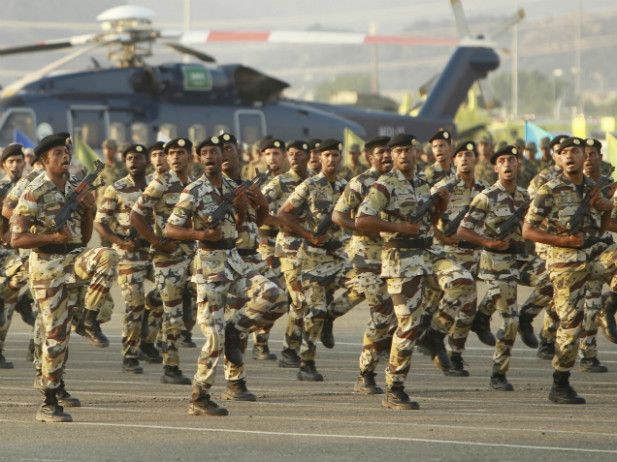Saudi Arabia's Advanced, Powerful Military Faces ISIS Threat In Wake Of King Abdullah's Death

The death of Saudi Arabia’s King Abdullah early Friday morning has come at a turbulent period in the kingdom’s history. The presence of the Islamic State group on Saudi Arabia’s border with Iraq has been the Saudi government's chief worry in recent months, bringing into sharp focus the important role that the country’s large, well-armed military will play under new King Salman.
Saudi’s cooperation in the U.S.-led coalition airstrikes against ISIS in Syria has reawakened a powerful military that has not fought since 1991. The exception being the short-lived Sadah conflict between 2009 and 2010 against the Houthis, a Shia insurgent group in northern Yemen and southwestern Saudi Arabia that is now ascendant in the neighboring nation. But in the face of the growing threat of the Islamic State across the region, the military has been forced to engage once more.
"Today we face a very dangerous situation where terrorist cells have turned into armies ... that extend to all of Libya, Lebanon, Syria, Iraq and Yemen," Saudi Foreign Minister Saud al-Faisal said to the Saudi Press Agency in September. "Faced with these dangerous facts, today we are required to take serious policy decisions to confront this vicious attack with full force. We need to move with assertive steps and fast."
The challenge for 79-year-old new King Salman, whose own health is frail, will be how to sustain the Saudi effort against ISIS built by King Abdullah.
"It was King Abdullah who put all the moral, the political weight behind the international coalition to stop ISIS' momentum," Abdulkhaleq Abdulla, a professor of political science at United Arab Emirates University, told CNN last year, adding that Saudi Arabia’s involvement was a “game changer.”
Despite years of peace, Saudi Arabia has maintained a large and powerful military that is regarded among the top five most advanced in the world, according to a Stockholm International Peace Research Institute (Sipri) report.
Funded from vast oil revenue, Saudi Arabia’s military is a highly advanced mix of Western-bought hardware, primarily from the U.S., France and the United Kingdom. According to the Sipri report, Saudi Arabia devoted around $67 billion to its military in 2013, around 9.3 percent of its GDP, up from $58 billion the previous year. That makes the Sunni kingdom the biggest spender on defense in the world as a percentage of the economy. In absolute terms, it's the seventh-biggest spender, with more money devoted to weapons than India.
Against ISIS, the military has so far only employed its substantial air force, which has over 300 aircraft, including newly acquired Eurofighter Typhoon combat jets made in Europe. To bomb ISIS, Saudi has used the American-made Boeing F-15 Eagle, a plane exported only to the most trusted American allies such as Israel and Japan.
But with Islamic State fighters probing the borders in the north of the country, the Saudi army is also likely to come into play, even if it's just used as a deterrent. That, too, is a formidable force, with over 150,000 men in active service, making it larger that the French and British armies.
© Copyright IBTimes 2024. All rights reserved.






















